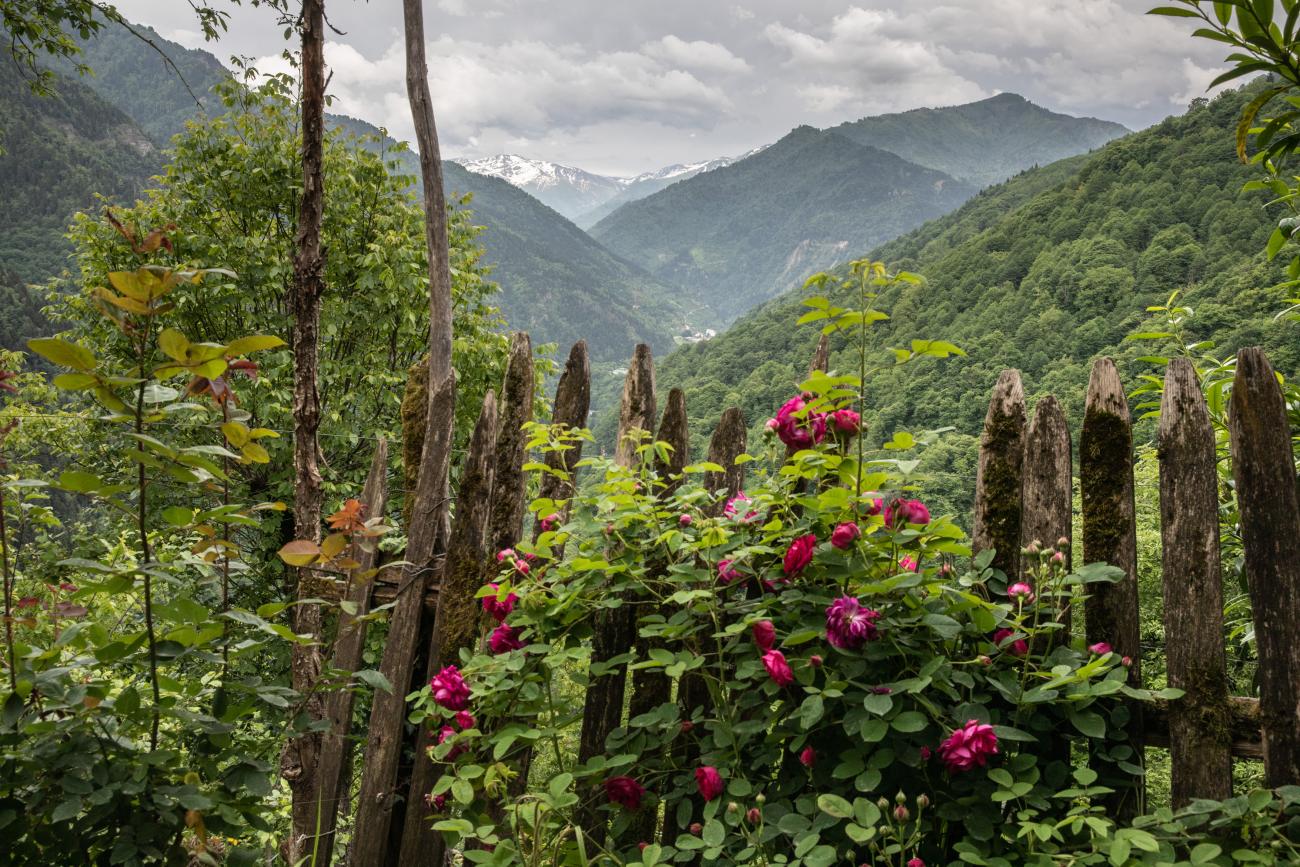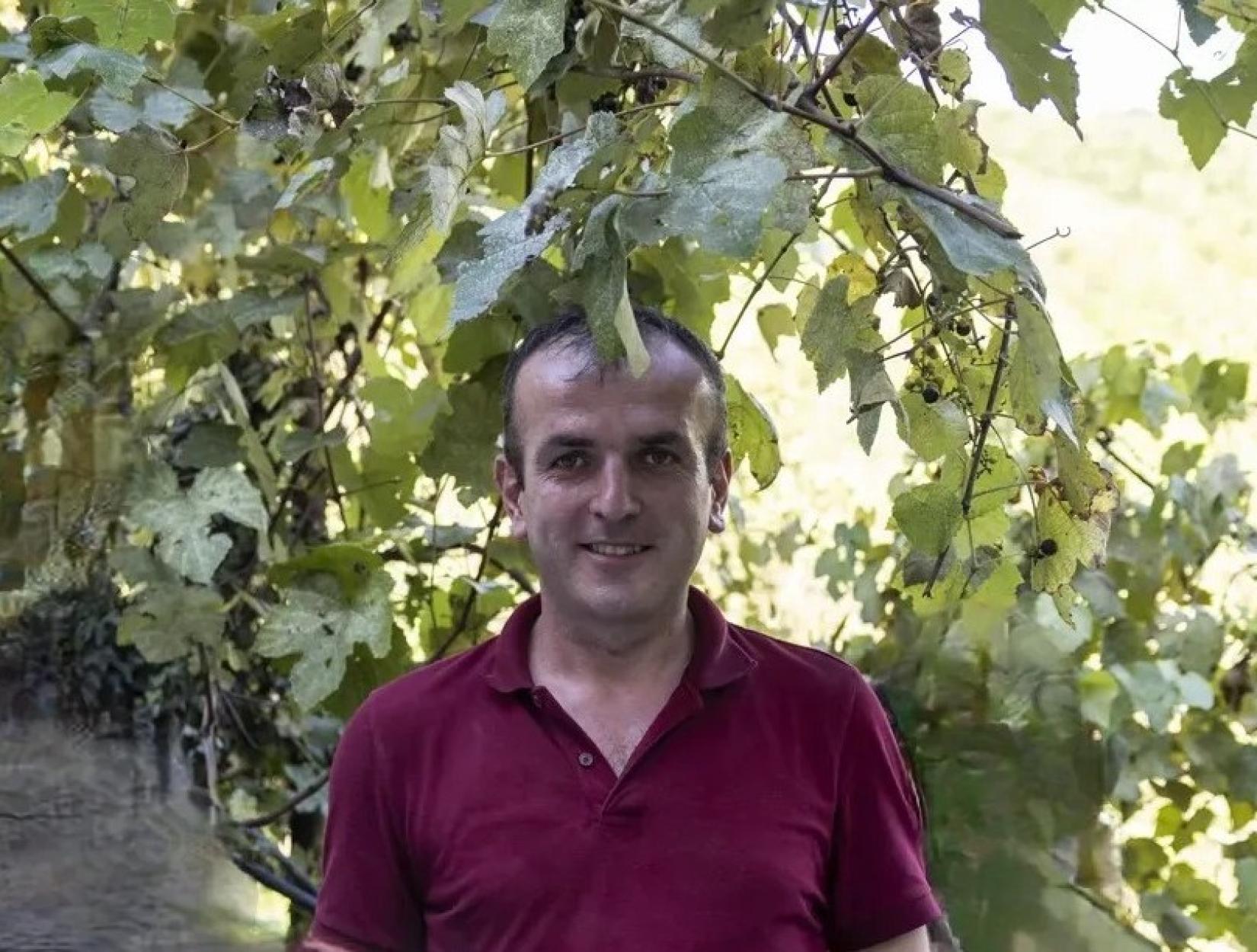Peace with Nature

Building a Sustainable Future through Eco-Tourism, Farming and Green Energy in Machakhela National Park
Nestled in the scenic highlands of the Ajara Autonomous Republic, Machakhela National Park was established in 2012 to preserve the UNESCO-protected Colchic rainforests. Beyond its role as a crucial biodiversity reserve, the park offers a unique opportunity to foster eco-tourism and advance the green economy in Georgia.
During a recent visit to Ajara, Didier Trebucq, the UN Resident Coordinator in Georgia, witnessed firsthand how green practices like eco-farming, renewable energy, and sustainable tourism are transforming the lives of over 3,000 residents in Machakheli Valley. These initiatives, led by the United Nations Development Programme (UNDP) with support from various donors, including the European Union, Japan, the Czech Republic, and the Global Environment Facility (GEF), are creating lasting impacts in local communities.
Machakhela National Park stands as an example of how biodiversity conservation efforts can blend with community development, demonstrating that environmental protection benefits both people and nature.
Bioenergy in a nutshell
Leila Kakhidze is a teacher in Zeda Chukhuneti village, located in the Khelvachauri municipality. Like many rural residents, Leila has to supplement her professional work of teaching primary classes with small business activities to make a living. She owns a small family café that offers stunning views of the valley.
“There is a lot that we still need to do, but things are moving fast. I am sure this small café will turn into a nice guesthouse soon,” Leila says, looking at the construction.
Leila is among the Machakheli Valley residents who have installed energy-efficient stoves and introduced renewable energy in their homes thanks to UNDP support.
In 2017, she was one of the first to pioneer green technologies. Being a trailblazer was not always easy; her neighbours were initially unsupportive. The community relied heavily on traditional practices such as timber harvesting. However, as time passed, almost all households gradually shifted from scepticism to support for conservation efforts. As part of the initiative, almost all households in her village have already installed solar panels which help operate the water heating system. They also shifted from firewood to energy-efficient stoves and biomass for winter heating. The push towards energy efficiency has further helped her and other residents lower their heating costs, contributing to their overall economic resilience.
During a UN Resident Coordinator Didier Trebucq visit, Leila shared how switching to alternative fuel has transformed her life. "First of all, the renewable energy sources—firewood biomass, energy-efficient stoves, and solar panels—help me maintain a comfortable temperature and ensure constant hot water at home during winter, reducing annual expenses on heating. For the valley, this means that our green cover remains undamaged and our forests intact," Leila remarks.
While the shift to renewable energy sources can lead to long-term savings, the initial costs associated with purchasing and installing solar panels and energy-efficient stoves may have been a barrier for some households considering similar changes. UNDP’s support contributes to overcoming these barriers.
Pathway to prosperity

Giorgi Salvaridze, a young entrepreneur from the picturesque village of Tskhemlari in Khelvachauri Municipality—home to Ajara's richest flora – turned his dream into a thriving eco-farming venture. Guided by a deep connection to his roots, Giorgi embraced two age-old crafts: beekeeping and winemaking. Starting with just a few beehives and a modest vineyard, he worked tirelessly to grow his enterprise.
With support from the Global Environment Facility (GEF), the European Union, and UNDP, Giorgi received training and technical assistance for his beekeeping cooperative, “Putkara” and a diverse range of grapevines for his vineyard. Today, he produces a variety of honey, including rich Chestnut honey, and makes celebrated local wines such as Chkhaveri and Tsolikauri, quickly gaining in popularity.
“We are grateful for projects like these in Machakheli Valley. Beekeeping and winemaking are more than a source of income; they show that positive change is possible, even in a small village,” Giorgi shares.
Standing amidst the lush landscapes of his home, he recognizes that his work is not only building a business but nurturing a legacy that inspires others.
“These projects bring new opportunities, improve well-being, and help keep people rooted in our community.”
Giorgi’s entrepreneurial journey is only beginning. Among his plans is to develop agrotourism, inviting visitors to experience his village’s natural and cultural treasures.
Following in his ancestors' footsteps in winemaking
In the heart of the Ajara mountains, where lush greenery meets the sky, a unique glamping experience and delicious wine await in the village of Chikuneti, located in the Khelvachauri municipality. The famous “Ilia's Marani” wine cellar, owned by Amiran Malakmadze, boasts a 10-century-long history.
While still young, Amiran Malakmadze recognized the importance of preserving his family's winemaking tradition. He successfully restored his ancestors' cellar and carefully cared for maintaining the legacy of his ancestors and nurturing the historical site. UNDP assisted him in creating a wine degustation space and popularizing the site as a tourism destination.
As Amiran told the UN Resident Coordinator Didier Trebucq during his visit to the region, UNDP’s assistance inspired him to start a business in his village. His eco-farm is gradually expanding. It offers wine from rare grape varieties to Georgian and international visitors. With his son Ilia’s help, the family also runs the glamping cottages that provide stunning views of the surrounding landscape. Each accommodation is designed to harmonize with nature while offering modern amenities and delicious Ajarian cuisine.
Glamping and Ilias Wine Cellar together create an unforgettable experience in Ajara—a place where nature’s beauty intertwines with rich cultural heritage. It brings hope for a better future in this mountainous region.
"Ilia's Marani" has been granted the status of an immovable cultural heritage monument since 2018.
------------
Since the establishment of Machakhela National Park, UNDP provided technical assistance to small farmers in areas such as winemaking and beekeeping. Additionally, initiatives like a livestock insurance programme and installing electric fences have significantly reduced losses from predators, thereby supporting local agricultural practices. Thanks to UNDP support, energy-efficient stoves, and solar panels have been installed for households in the Machakhela National Park. Those interested in opening family guesthouses have been trained in touristic management and received start-up support. In 2022, with support from UNDP, a renovated exhibition hall opened in the heart of Machakhela National Park, showcasing the Park's rich history and unique nature.
UNDP’s work in the Machakhela National Park is part of its wider assistance to Georgia in expanding access to green solutions and making environmental issues an integral part of development.





